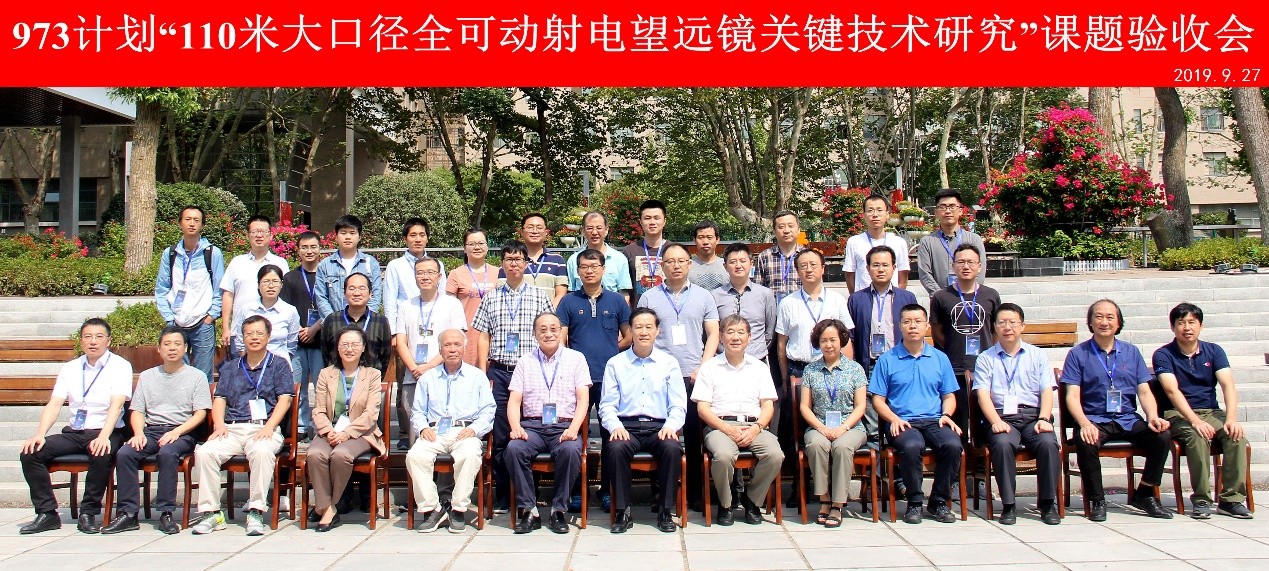

Project Acceptance Meeting of 973 Program on the Key Technologies for 110-m Aperture Fully Steerable Radio Telescope was Successfully Held
On 27 September 2019, Wuhan witnessed the successful of Project Acceptance Meeting of National Program on Key Basic Research Project (973 Program) for the Key Technologies for 110-m Aperture Fully Steerable Radio Telescope. More than 30 participants were present at the meeting including the project principal, program members and postgraduate students.
The project acceptance team was composed of 13 experts, including the project Chief Scientist of the project, Dr. Wang Na, expert in charge of the 973 program, Dr. Huang Cheng, and other experts related to the project. They carried out acceptance checks were carried out on four projects, namely “A large sample of radio astronomical observations and research on the frontier technologies”, “Antenna structure in a complex environment conservation and high precision pointing control”, “ Ultra- wideband receiver and high speed digital backend” and “Reflector with high precision measurement and real - time closed - loop correction of the active surface”.
The project acceptance team provided constructive advices on achievements of the project, innovation ability of the research team, talent cultivation, data sharing, fund management and other related issues. They agreed that the research works over the past four years have been carried out with friutfull results , the research works have been carried out with fruitful results under the leadership of the chief scientist. In addition, some the projects even outperformed their criteria with publications in scientific journals such as Science and ApJ with high citation rates. Dr. Huang Cheng said that the achievements of the project focused on the key technologies for 110-m aperture fully steerable radio telescope, and which provided technical support and skill reserve for the system upgrades and operation. Furthermore, the accumulated experience and human resources are useful for preparation of the scientific research for the QTT project.

Group photo
Attachment Download: